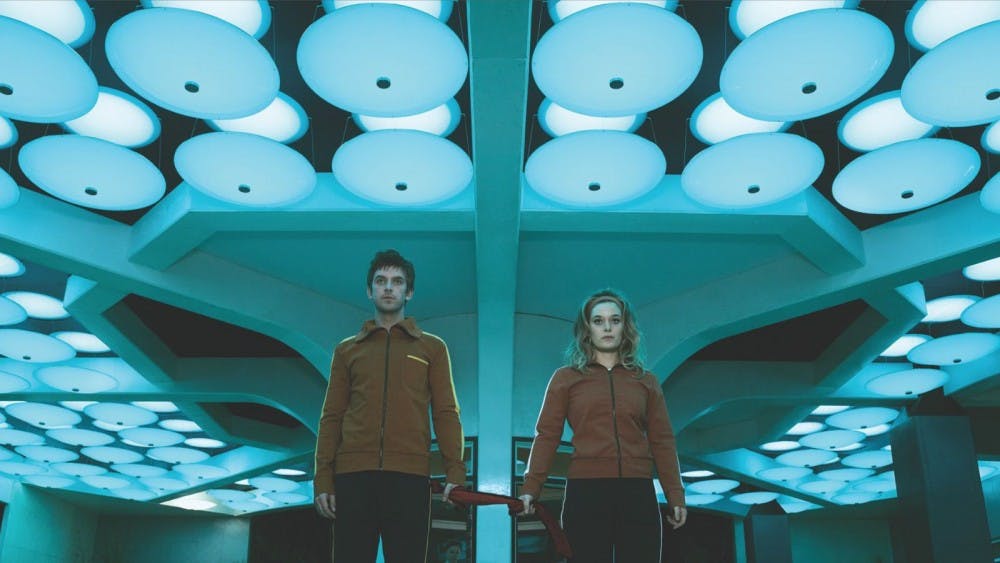It’s been nearly a decade since Robert Downey Jr. blasted his way out of a cave as Iron Man, and the over-saturation of superhero spinoffs began. As Marvel and DC duke it out in the box office, a different battle wages on our television screens.
Shows like “Marvel’s Agents of S.H.I.E.L.D.” and DC’s “Arrow” are just as blandly enjoyable as viewers have come to expect from the studios that spawned them. Those wanting something a little darker can choose from Netflix’s more critically acclaimed “Defenders” shows, including Marvel’s “Daredevil” and “Jessica Jones.”
Even with the wide range of options, many of these series are annoyingly formulaic and unappealing to viewers who aren’t already superhero fans. So when it was announced that FX was adapting another “X-Men” comic series for television, critics and audiences alike heaved a sigh and resigned themselves to another moderately entertaining show about a misunderstood hero in a silly costume.
Then somewhere along the way, everything changed. Perhaps it was when Noah Hawley of FX’s “Fargo” signed on as show-runner, and the series was suddenly in capable, unpredictable hands. Or maybe it was when Dan Stevens, of “The Guest” and “Downton Abbey,” was cast as the mentally unstable lead, and Aubrey Plaza joined the show as his dangerously crazy pal.
Or perhaps it took until the pilot episode aired in full for people to realize that this was something entirely different and totally unprecedented. One thing is for sure.
There has never, ever been a superhero show like “Legion.”
From the very beginning, “Legion” is a maddening, multi-colored whirl of montages and flashbacks. The first montage introduces David Haller, a troubled youngster who becomes increasingly mentally unstable as he grows up. Not only does Haller hear voices, but mysterious events tend to follow him, events that may or may not be happening in his head.
After an unsuccessful suicide attempt, Haller ends up in a mental hospital, where he’s diagnosed with paranoid schizophrenia and heavily medicated. This all happens within in the first five minutes of the pilot, and while it slows down to a more manageable speed for the rest of the episode, Hawley sets a formidable, efficient pace.
Haller’s time at the hospital takes a turn for the better when he meets new patient Sydney Barrett, and the two damaged blondes fall head over heels in love. Barrett’s particular psychosis prevents anyone from being able to touch her, which David originally accepts but ultimately struggles with.
While “Legion” begins by framing Barrett and Haller as mere victims of mental illness, it quickly becomes clear that they aren’t just mentally unstable. They’re actually mutants — the “X-Men” designation for people with abnormal abilities — and the traits that have been mislabeled as illnesses are actually gifts.
The first episode flashes back and forth between different time periods and scenarios that can be hard to follow, especially when punctuated with Haller's hallucinations. If the main character can't tell what’s real and what isn’t, the audience doesn't stand a chance.
Dream sequences and hallucinations are often the least enjoyable aspect of shows and movies that try to incorporate them, but in this case, they are essential. Without a strong central character to rein in the narrative, “Legion” may have veered into unnecessarily trippy territory, but Haller is compelling enough to anchor the more surreal sequences.
Stevens brings his usual intensity to the role but tempers it with surprising charm and vulnerability. Haller’s most impressive scenes happen late in the episode when he realizes just how dangerous he can be, but Stevens is at his best in quiet moments opposite Sydney (Rachel Keller) in the mental ward.
“Legion” is a visual masterpiece, from the intricate, surreal sets to the colorful, strangely mod costuming — think Wes Anderson’s darker, creepier cousin. The visual effects are equally impressive, and a scene where Haller accidentally levitates the entire contents of his kitchen stands up to anything seen in a big budget superhero blockbuster.
The confounding, psychedelic nature of “Legion” may not be for everyone, but such is always the case with groundbreaking television. Dragons and incest aren’t for everyone, yet “Game of Thrones” is a global phenomenon. Smoke monsters and mysterious flashforwards weren’t everyone’s cup of tea, yet “Lost” transfixed audiences for six seasons.
There’s a certain type of series that can transcend genre and become mandatory viewing for everyone from sorority sisters to grandparents. Critics love them, viewers worship them, and they rise beyond labels like “supernatural” or “fantasy” series.
“Legion” is that kind of show.
It may not be the next “Game of Thrones,” but to compare “Legion” to “The Flash” or even “Daredevil” is to brand it as something it’s not. Hawley is batting in the big leagues with this one, in a way no superhero show has done before.
So even if the star-spangled heroics of “The Avengers” and the gritty violence of DC vigilantes aren’t for you, give “Legion” a chance. It may not be a smooth ride, but the best rollercoasters never are.
Grade: A-




